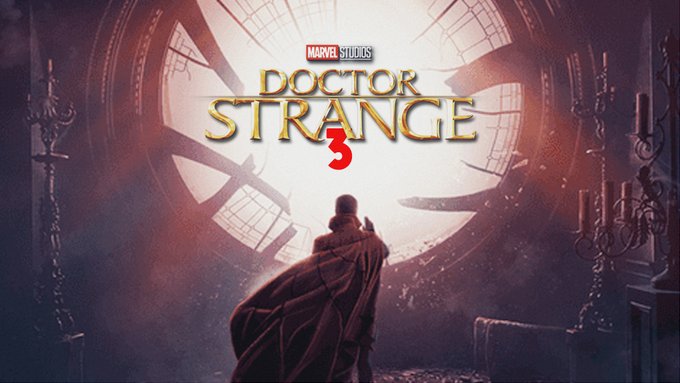a#1 air owners divorce: Is there a divorce between owners?
The assertion that shareholders own firms is, at best, based on a misunderstanding of the law, business, and history. At worst, it is motivated by greed, power, and a desire to maintain business governance that has wrecked most of America for nearly four decades.
Why you may wonder, is the subject of who owns the firm so critical? Because there is conflict at the center of the discussion between two kinds of capitalism. One side sees a solid responsibility to protect the shareholder’s interests first and foremost. The other side suffers the consequences of a corporation’s failure to prioritize its other stakeholders, which include its employees, customers, and the community in which it operates.
In reality, either kind of capitalism will almost surely benefit the shareholder. Change is always difficult and frightening for people who wish to maintain the status quo, even if it doesn’t cost them anything. But I believe there is a problem with the status quo. The existing version of capitalism benefits shareholders but is disastrous for most Americans and destructive to American competitiveness on the global arena, particularly in our economic battle with China. Furthermore, it is now posing a serious threat to our democracy. As a result, a clear and urgent shift away from shareholder primacy capitalism is required.
The status quo’s defense—shareholder primacy governance—is increasingly based on the premise that shareholders are the ultimate owners of the firm and thus have the right to demand whatever is in their best interests.
But, before we naively accept that notion, we must study various kinds of capitalism, the nation’s experience with each, and why the problem of corporate ownership becomes an essential, if not central, factor.
Different Forms Of Capitalism And Government
The contentious debate that is taking place in the United States of America right now is centered on two distinct models of capitalism. Not of capitalism, which continues to be the most effective mode of economic production that humanity has ever conceived. With access to necessary resources such as capital, labor, and a sustainable supply chain, as well as embracing the principles of prudent risk-taking, wise apportionment of incentives and rewards, and a commitment to practice sound long-term investment, capitalism functions on its own like a brilliant, inanimate engine.
It acts like this because it adheres to prudent risk-taking, wise apportionment of incentives and rewards, and a commitment to practice sound long-term investment. It lacks any ethical or moral components whatsoever. Because of this, governance, as well as the criteria for participation, become extremely crucial. Governance has a crucial role in determining who reaps the rewards of this beautiful capitalist machine. Taking into account China’s goals, it may be said that the capitalist engine in China is running well.
And the Communist government is the prime beneficiary of most of the money made there. Through taxation, capitalism is rewarded in some of the Nordic European countries by providing benefits to shareholders and government projects that provide residents with free education and free healthcare. A significant portion of Europe has an advanced socioeconomic safety net funded by taxes. Nevertheless, free market capitalism continues to be the primary driving force.
Shareholder Primacy Capitalism
For 40 years, US corporate governance has prioritized shareholders over other stakeholders. All CEOs and directors understand shareholder primacy: Business exists to maximize short-term shareholder value. Since stockholders own the corporation, this has been claimed to be fair. Over the last four decades, customers, workers, corporations, vendors, communities, and the earth have all become secondary.
The capitalist engine nevertheless operated well. It maximized short-term shareholder value. Stakeholders were abused. The financial community, which fiercely enforced the system, guarded this governance. CEOs and other C-suite executives were corrupted with equally incredible benefits if they matched this shareholder demand. They were fired if they couldn’t or wouldn’t.
The financial community might lower the stock price if CEOs and boards violate this rule. Before the epidemic, Bank of America cut Chipotle’s stock because an analyst found the company overpaid its workers. The stock dropped 3%. Wall Street penalized American Airlines by 5% after it announced pilot and flight attendant pay hikes. Labor would be squeezed while stockholders profited. Workers’ incomes have been static or below inflation for 40 years.

Finally, shareholder primacy has intensified activist terrorists who blackmail and intimidate CEOs and corporate boards. Activists have always helped corporations. They often helped management create value. They occasionally took over the company to hold the stock and capitalize on its inherent but underperforming value generation. New campaigners adopt a different strategy.
They take over the company, take out the cash, cut R&D, fire as many people as possible, flip the company once it goes public, or sell the corpse to a strategic buyer. Everything maximizes short-term value. They don’t even need to buy the company. They invest in the target firm and threaten to execute their typical maneuver if it does not “voluntarily” offer that additional short-term value at the expense of all other stakeholders.
Stock buybacks, another merciless shareholder value-boosting technique, are tax-efficient. Reducing share count has cost trillions of dollars to benefit current investors. This artificially increased the value of the remaining shares without adding company value. Financial engineering’s apex. (Before 1982, stock buybacks were illegal stock manipulation.) Before the epidemic, 54% of corporate operating earnings went to stock buybacks and 37% to dividends. American firms gave stockholders 90% of operating profits. Thus, 25% of Americans by income—most of whom are stockholders—own 98% of the stock market.
Stock buybacks reached 20-year highs in the first four months of 2021. This wasteful use of operating income is awful. Underpaid workers This decision deprived R&D and essential research-leading firms. America led technology, transportation, semiconductors, computers, and medicine. We invented synthetic biology, but Chinese scientists are ahead. Where is 5G technology? “Our adversary is out to eat our lunch,” Intel CEO Pat Gelsinger said in an interview. We’ll lose if we don’t fight for it every frickin’ day.” Government investment assistance remains low. Businesses must do more. We’re breaking stock buyback records. We’re world champions.

Shareholder dominance was cruelest to labor. Their unjustifiable, arbitrary wages caused a microeconomic calamity. It affected families and caused educational inequality, placing American youngsters in the lowest half of developed nations. It made America the most unequal and immobile nation among its peers. Lastly. Before the outbreak, nearly 60% of American households had to borrow money for food or housing.
Shareholder primacy causes this. Perverted capitalism that shareholders are fighting to retain. It’s also getting support from Congressmembers who earned substantial campaign contributions.
Four decades of shareholder control have also hurt democracy. Affected Americans are losing faith in our government’s fairness. Populist movements have exploited this population for 40 years, resulting in authoritarian regimes worldwide (Turkey, Hungary, Poland). The same movement has threatened American democracy. This unjust capitalism causes our country’s tremendous socioeconomic inequality. Black and brown populations have suffered the most, as the COVID-19 outbreak has sadly shown.
If stockholders do not control a public firm, how can one promote such a flawed and harmful capitalist model? Because of this, who owns the firm is crucial to explaining why a better, more just, more balanced version of capitalism is America’s most excellent option moving forward.
Who Then Holds Control Over This Business?
To put it another way, the company owns all of its property and resources. When a private company’s founding families sell their stake to new investors or shareholders, the business transitions from the private to the public sector. In return, they were given a stock certificate that outlined the special profit rights and other benefits associated with the investment. Once more, a stock certificate rather than a proof of ownership was given to them to keep.
That agreement does not reference the concept of “ownership.” In addition, shareholders are entitled to a portion of the profits made by the enterprises in which they own shares. Still, they are no longer responsible for the debts incurred by the businesses. They are shareholders. They are effectively afforded complete immunity from prosecution! In addition, shareholders can buy or sell their holdings in a company’s stock anytime they want (with very few exceptions).
In the current climate, the stock owner could be a machine, and the holding period for the shares could be measured in milliseconds. These facts, in my view, constitute sufficient and logical evidence that a shareholder is not the same thing as an actual owner of the business. Do you know of any “owner” of a large or small firm that assumes no responsibility for the company’s risks or liabilities? I have severe doubts about that.







